In today's rapidly evolving business landscape, effective corporate governance is more crucial than ever for ensuring transparency and accountability within organizations. As stakeholders increasingly demand higher standards of ethics and compliance, companies must adapt their governance practices to meet these expectations while fostering a culture of trust. This update aims to shed light on the latest developments and best practices in corporate governance that can significantly enhance organizational integrity. So, let's dive in and explore how these changes can impact your business for the better!

Opening statement and purpose.
Corporate governance updates play a crucial role in ensuring transparency, accountability, and effective management within an organization. The primary purpose of this update is to provide stakeholders, including board members and executive management at [Company Name] located in [City/Region], with a comprehensive overview of recent developments, legislative changes, and best practices in corporate governance. This report aims to facilitate informed decision-making and foster an environment of continuous improvement in governance practices, ultimately enhancing overall organizational integrity and stakeholder confidence.
Executive summary of governance changes.
Recent developments in corporate governance have led to substantial changes aimed at enhancing transparency and accountability within organizations. Regulatory shifts, particularly pertaining to the Securities and Exchange Commission (SEC) guidelines in the United States, have mandated stricter disclosure requirements for board member qualifications and executive compensation packages. The introduction of the Board Diversity Disclosure rule emphasizes the importance of gender and racial diversity in board composition, pushing companies like Fortune 500 entities to actively seek diverse candidates. Furthermore, following the global trend towards ESG (Environmental, Social, and Governance) initiatives, organizations are increasingly integrating sustainability practices into their governance frameworks. This shift reflects heightened stakeholder expectations for ethical conduct and social responsibility. Consequently, these governance changes signify a transformation towards more inclusive and responsible corporate practices, safeguarding long-term shareholder value while aligning with societal goals.
Detailed description of policy updates.
The recent corporate governance updates have introduced significant policy changes aimed at enhancing transparency and accountability within organizations. Key aspects include the implementation of stricter guidelines for board member qualifications, ensuring diversity by encouraging representation of varied backgrounds, such as gender and ethnicity, in board compositions. Another updated policy mandates regular audits (minimum annually) to evaluate compliance with ethical standards and regulatory requirements, particularly for publicly traded companies listed on stock exchanges like the NYSE and NASDAQ. Additionally, whistleblower policies have been reinforced, providing protection for individuals who report unethical behavior or violations, fostering a culture of integrity. Furthermore, companies are now required to disclose detailed reports on executive compensation packages, aligning them with performance metrics to ensure fair distribution of rewards linked to overall company success.
Impact on stakeholders and compliance requirements.
Corporate governance updates play a crucial role in maintaining transparency and integrity within organizations, particularly affecting stakeholders such as employees, shareholders, and customers. Recent regulatory changes, including the Sarbanes-Oxley Act of 2002, necessitate stricter compliance measures, impacting reporting practices and internal audits. Stakeholders might experience changes in their engagements due to new policies aimed at enhancing accountability and ethical conduct. Additionally, the increased focus on environmental, social, and governance (ESG) criteria impacts how companies interact with communities and manage resources sustainably, driving compliance with global standards like the UN Sustainable Development Goals. As a result, organizations must adapt their governance frameworks to address these evolving compliance requirements, ensuring all parties are informed and aligned with best practices.
Closing remarks and next steps.
The recent corporate governance update highlighted significant progress in policy implementation, particularly in transparent financial reporting practices adopted by the board. Enhanced oversight mechanisms, including the establishment of an independent audit committee in accordance with the Sarbanes-Oxley Act, ensure better compliance with federal regulations. Upcoming initiatives involve refining stakeholder engagement strategies, scheduled for discussion at the next quarterly meeting in December 2023. A comprehensive review of the code of conduct will commence in January 2024, aiming to align with evolving best practices in corporate ethics. Stakeholders are encouraged to provide feedback by the end of November 2023 to facilitate an inclusive decision-making process moving forward.

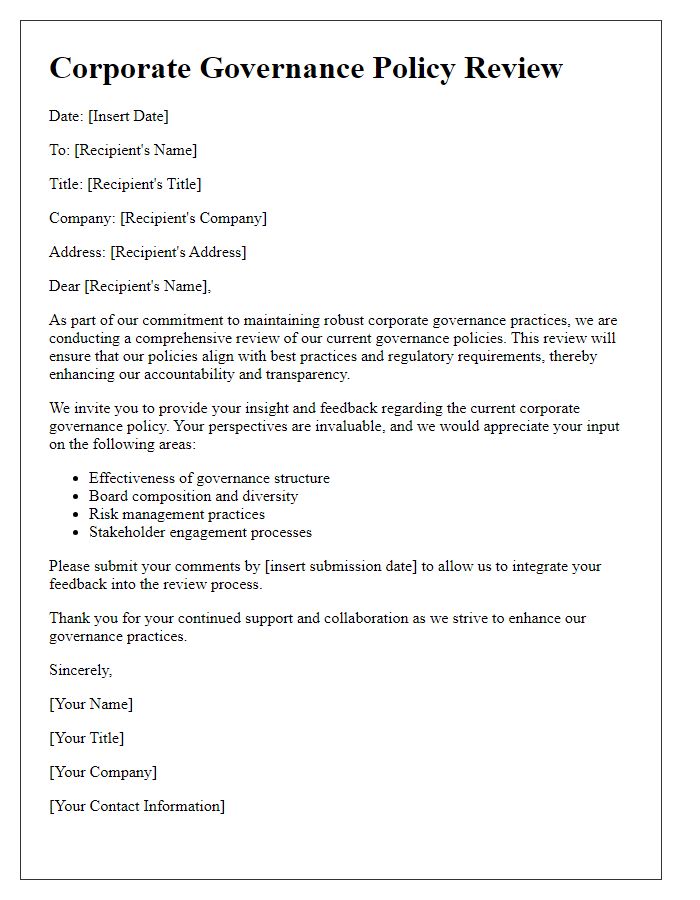
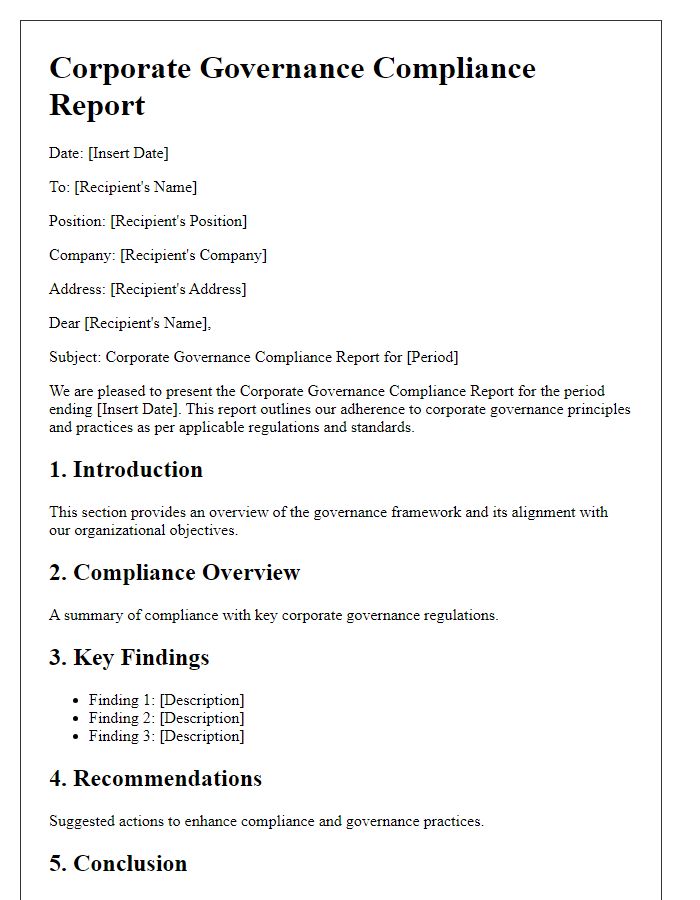
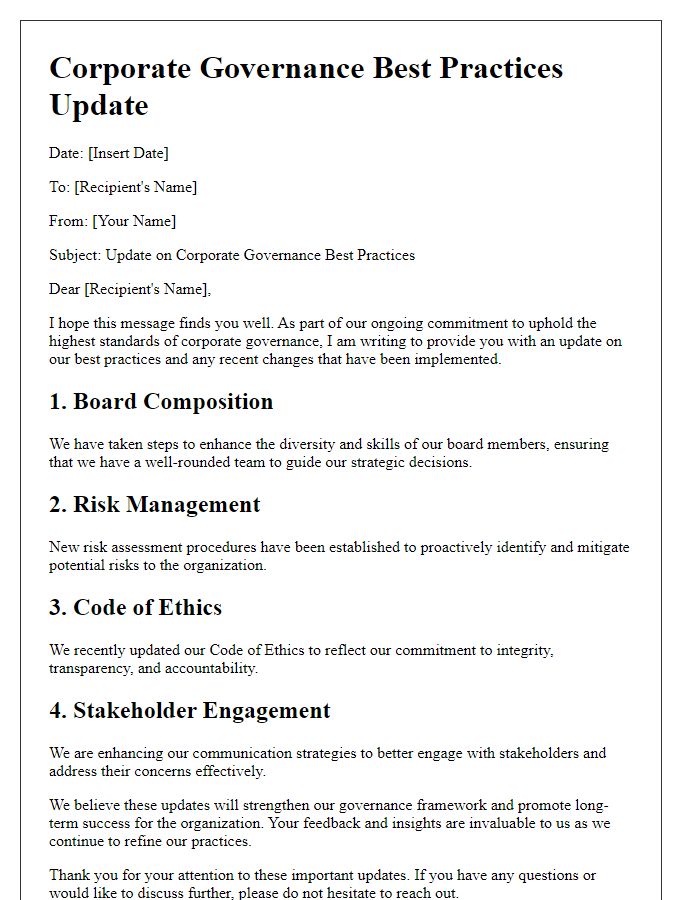
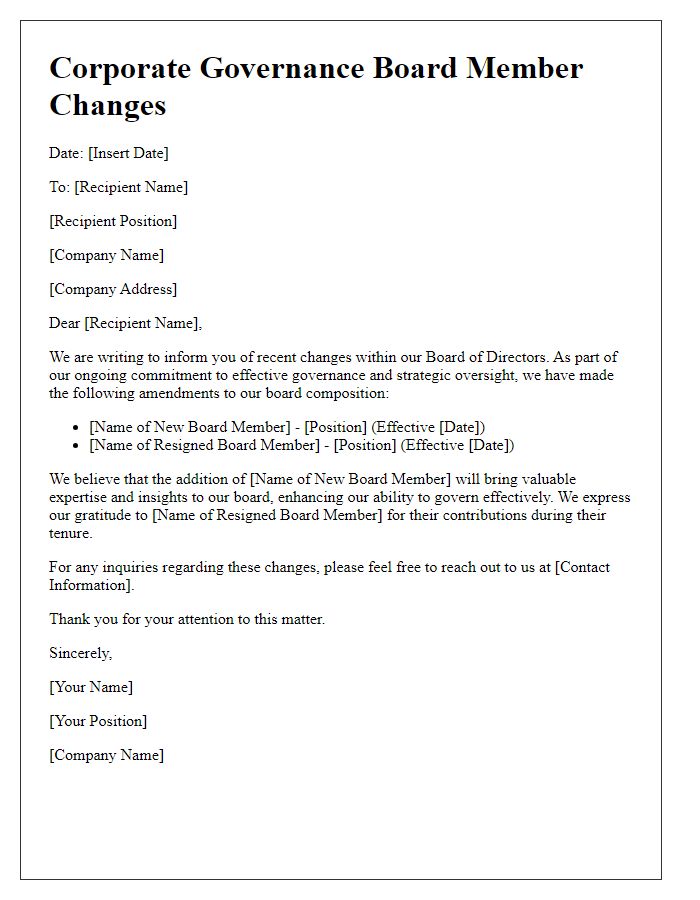
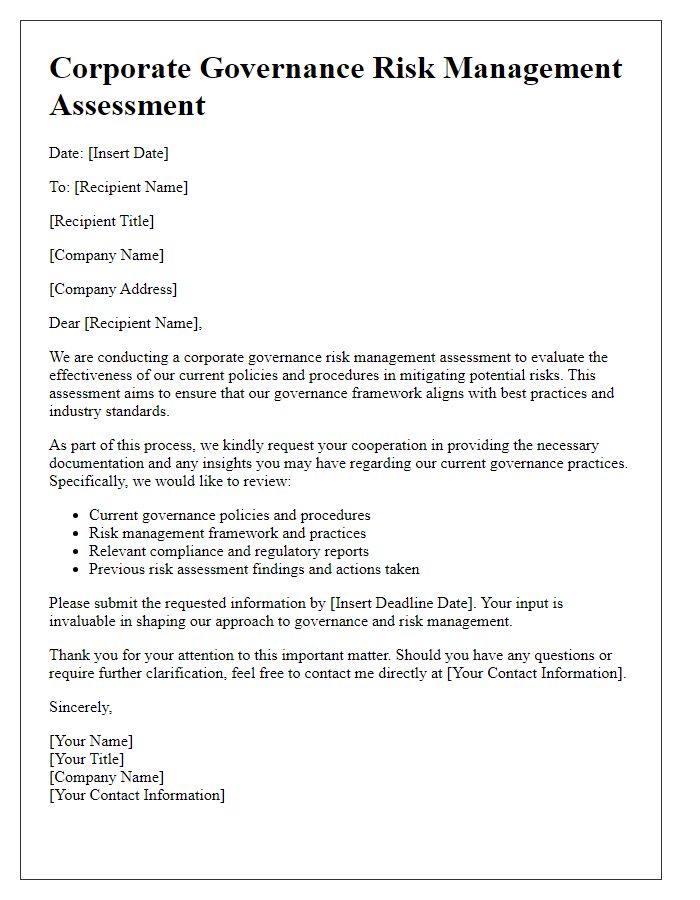
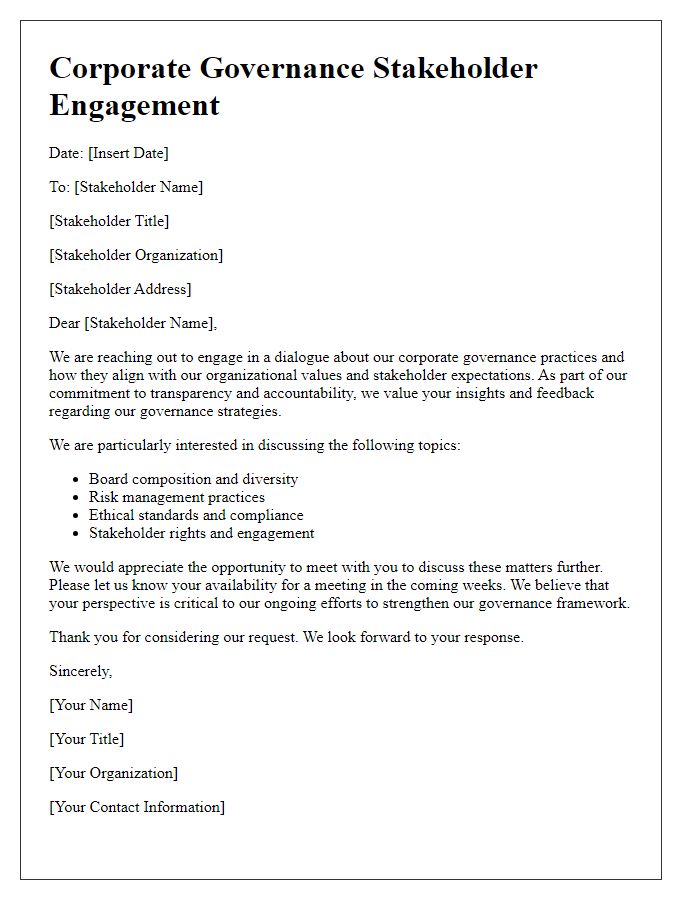
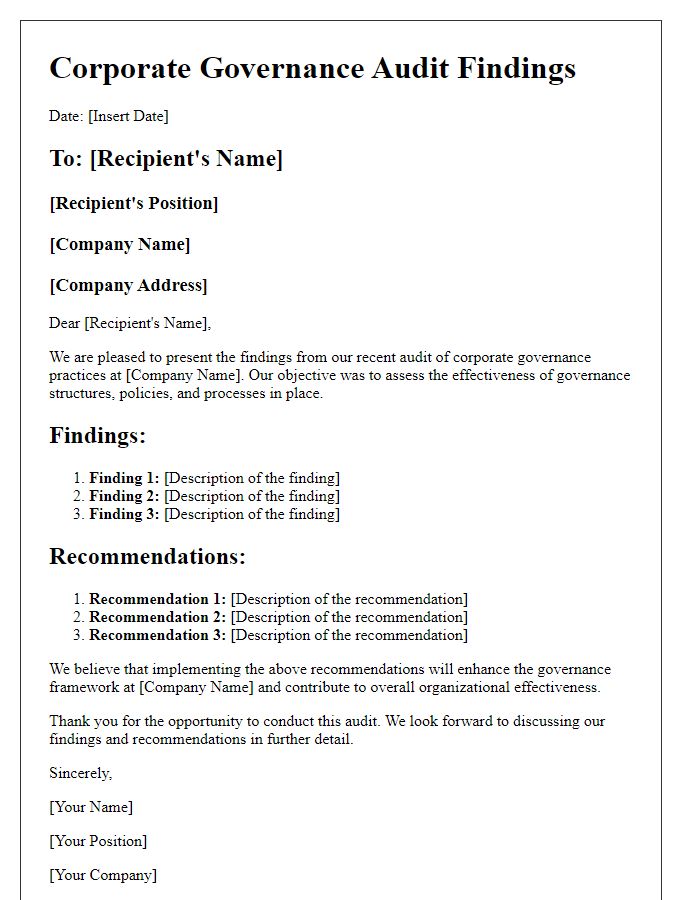
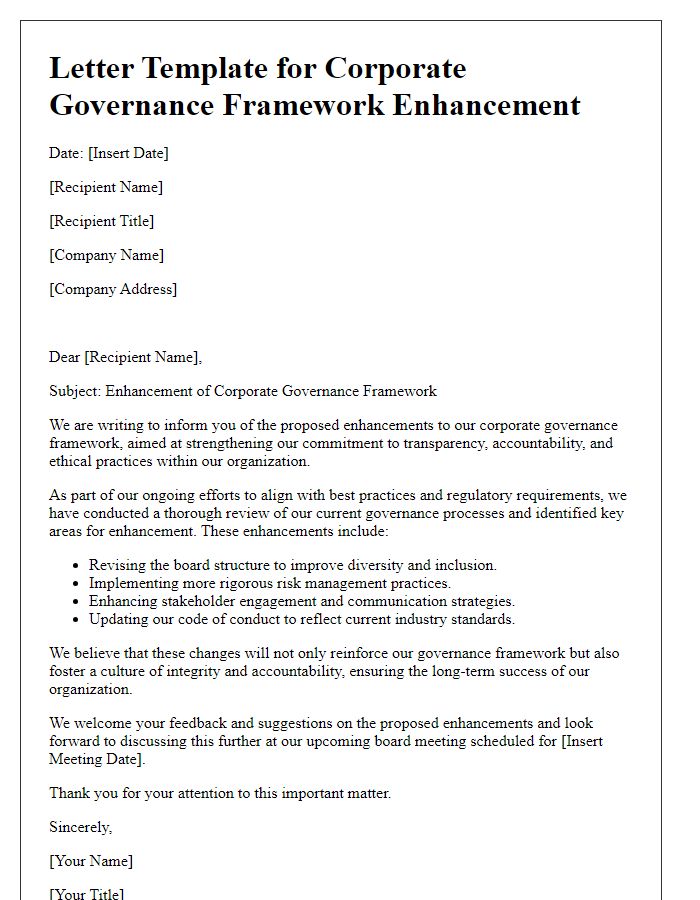
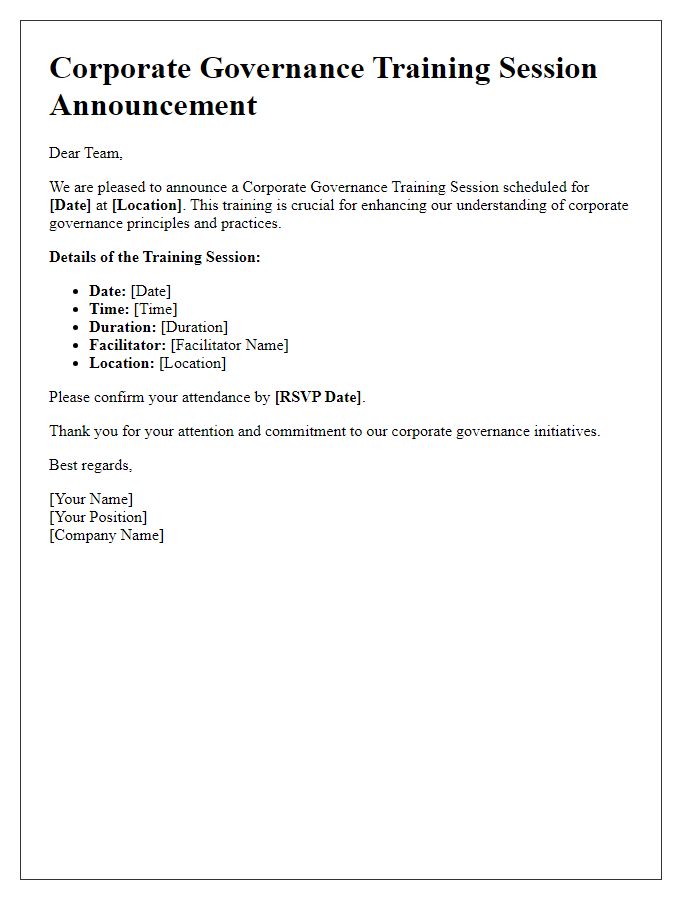
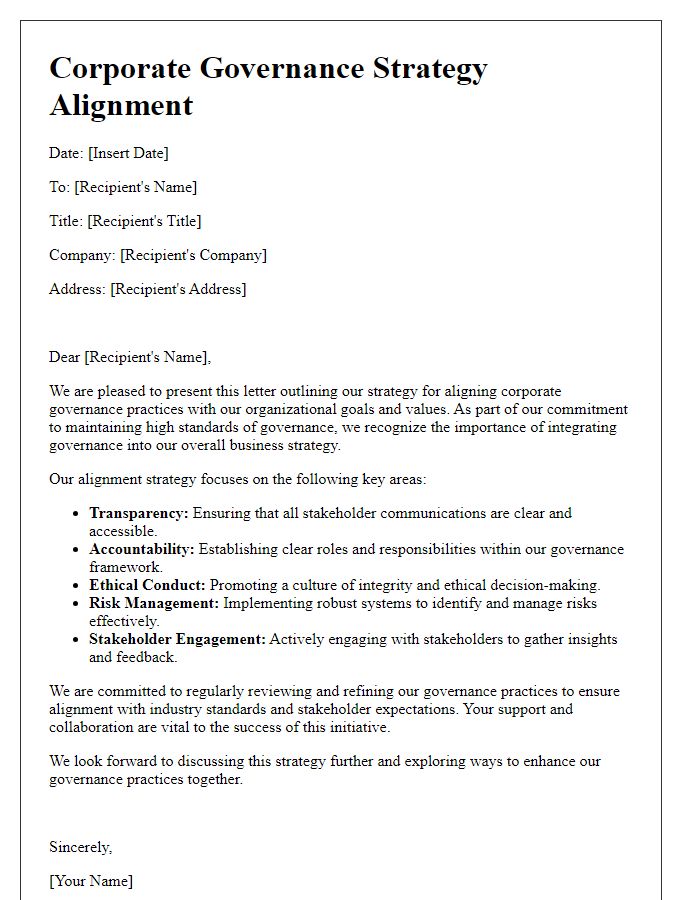


Comments